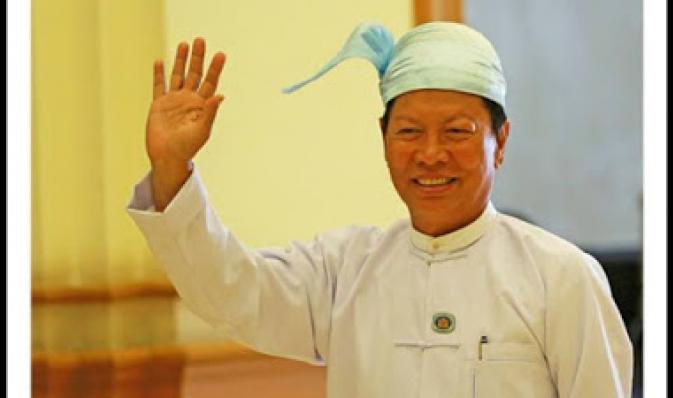
RANGOON — Muslim organizations both overseas and within Burma have condemned a statement made by Religious Affairs Minister Aung Ko that those who practice Islam are not full citizens of the country.
In a Voice of America (VOA) interview conducted during his first days in the Cabinet position, the former military general and ex-Union Solidarity and Development Party (USDP) lawmaker was asked how the new government would treat religious minorities in Burma, as the previous regime has been accused by both local rights groups and the international community of having persecuted these populations.
Aung Ko replied by denying any government abuse based on religion, adding that some groups had simply “misunderstood” the previous administration’s “over support” for Buddhism. He said that in Burma, Buddhists were “full citizens,” and that religious minorities, including Christians, Hindus and Muslims, had not been “deliberately oppressed.”
Perhaps his most controversial statement was that Muslims made up the majority of Burma’s “associate citizens,” implying that those who practice Islam are classified as partial citizens or foreigners.
Muslim organizations have begun sending letters to the new National League for Democracy (NLD) government that appointed Aung Ko in the ministerial role, expressing anger at his statement.
The All Myanmar Islamic Religious Organization said that while they welcome an elected NLD government, the comments in Aung Ko’s VOA interview were “hurtful.”
Abu Tahay, chairman of the Union National Development Party (UNDP), an organization from Arakan State’s largely Muslim Buthidaung Township, said that his party is preparing to contact the government soon, to ask that they refrain from using religion as a political tool.
“Citizenship can not be based on religion. Therefore, it was not appropriate to talk like this,” said Abu Tahay, who is also a leader within the Rohingya community, a Muslim group which has been denied citizenship by the former government, who labeled the Rohingya as migrants from neighboring Bangladesh.
In an April 2 statement from the UK-based Burmese Muslim Association (BMA), spokespeople said they “strongly condemn [Aung Ko’s] careless talk.”
They added that they had expected the NLD—which garnered widespread national support in the 2015 election—to adhere to principles of democracy, human rights, and equal rights on which they had campaigned.
“We have asked the party to give an explanation for what [Aung Ko] said and whether these words came from the party or only from him,” said the statement.
The BMA referenced Burma’s constitutions from 1947, 1974 and 2008, which recognize Islam as a religion practiced by citizens of the country. There is no mention of “associate citizenship” for Muslims in any of these documents, the group’s statement pointed out.









